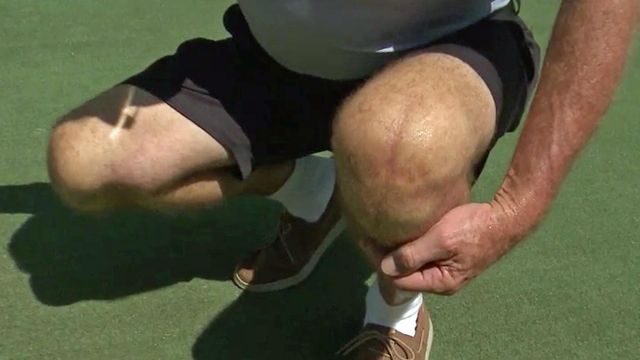Joint replacement helps golfer get his swing back
Osteoarthritis, along with other types of arthritis, is the biggest reason why many people end up needing hip or knee replacement surgery. Obesity is also a major contributor.
Posted — UpdatedFor many, golf can be a lifelong passion that begins at an early age and continues into the 70s, 80s or even 90s.
But some have to stop their passion because of joint pain.
“Typically, when you find yourself modifying your activity enough that you are starting to give up the things that you enjoy, then often times you're a candidate for joint replacement,” said Dr. John Moore, orthopaedic surgeon at FirstHealth Moore Regional Hospital.
In 2004, Moore met with 69-year-old Roy Jackson about the osteoarthritis wearing away the cartilage on his left knee. Jackson's golf game was suffering, as well as his knee.
“It affected my golf because I couldn't pivot my knee,” he said.
He tried conservative measures at first, with low-impact exercises and injections. But later, he was ready for a new knee.
Moore is careful not to recommend joint replacements for patients younger than the late 50s.
“Typically, today's joints are lasting a bit longer than what our previous joint replacements were. These are lasting 20, 25 and even up to 30 years,” Moore said.
Jackson remembers waking up the afternoon after his surgery.
“A little later, we were up and doing a little bit of walking,” he said.
He had about two weeks of at-home physical therapy, and then he got back to the game he loves.
“It didn't help my golf game, but I feel better when I'm playing,” Jackson joked.
• Credits
Copyright 2024 by Capitol Broadcasting Company. All rights reserved. This material may not be published, broadcast, rewritten or redistributed.





